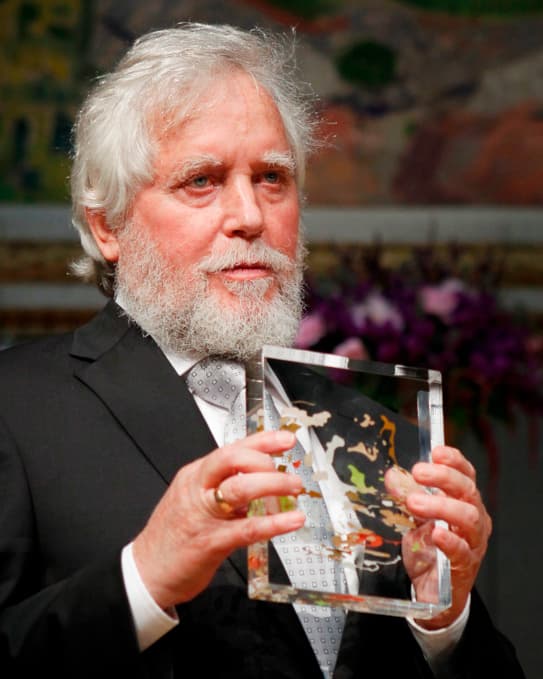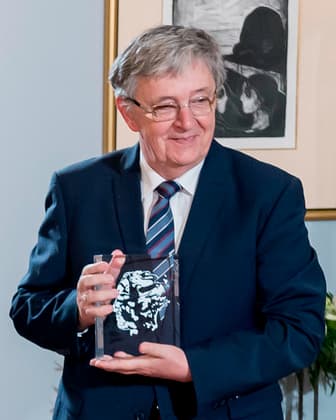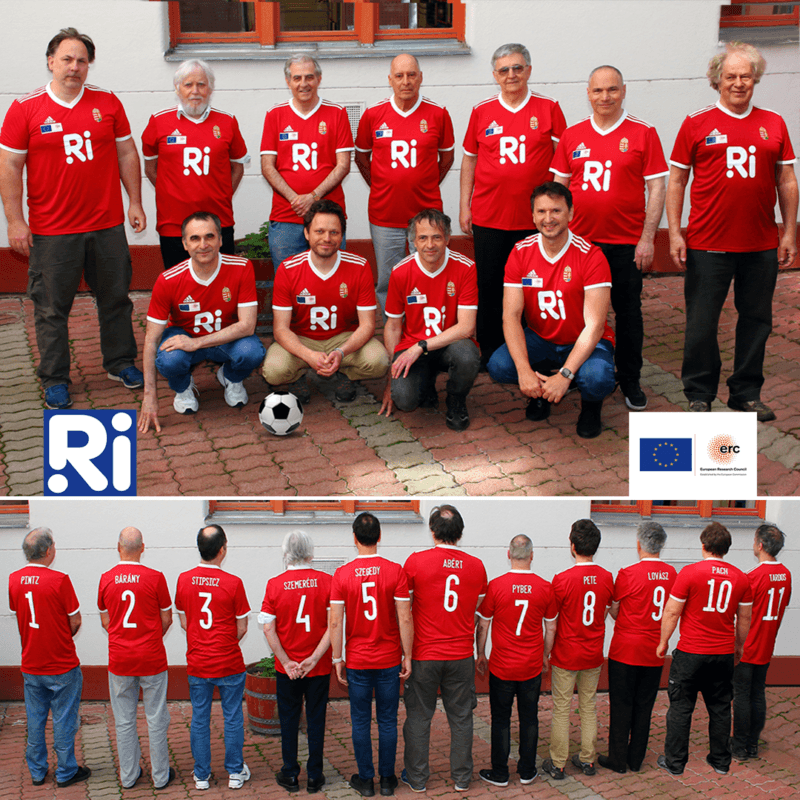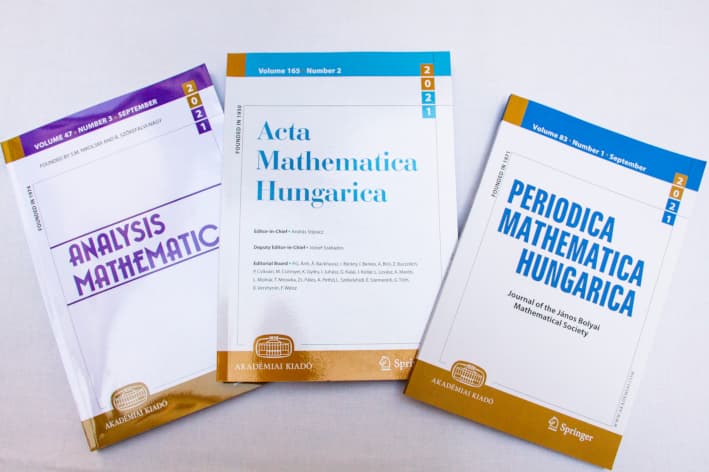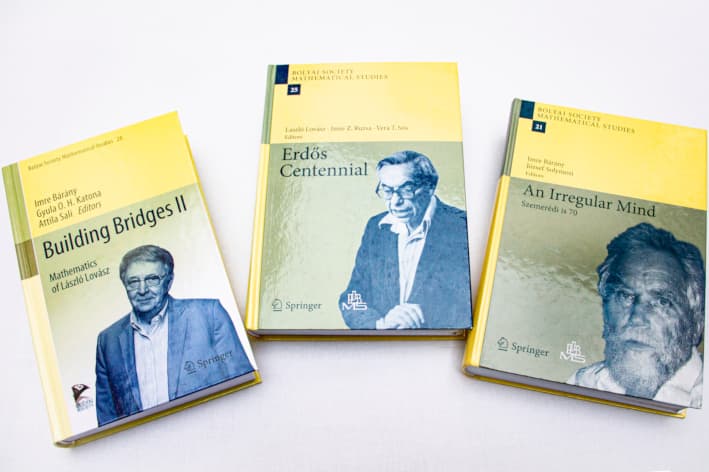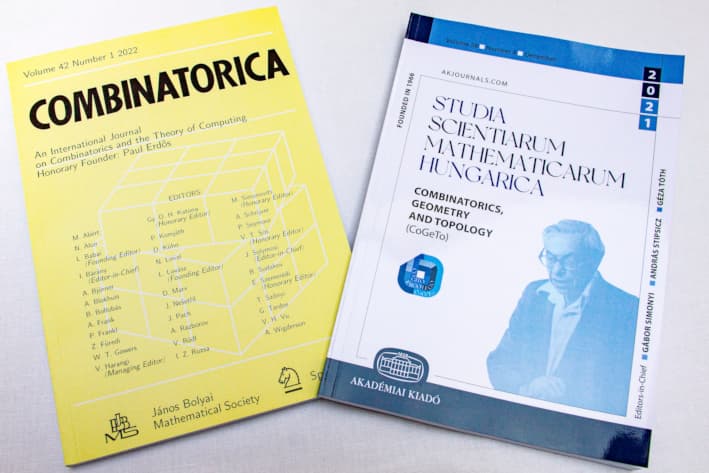The Rényi Institute is located in the historic center of Budapest, in a beautiful palace from the end of the nineteenth century. The institute plays a central and dominant role in Hungarian mathematics. Its main mission is to advance mathematical research at the highest level, and (in cooperation with universities in Budapest) it also plays an important role in training young mathematicians.
The Rényi Institute was founded in 1950, as part of the chain of research institutes of the Hungarian Academy of Sciences (HAS). Its founding director, Alfréd Rényi, a well-versed and outstanding mathematician with important contributions to probability theory, graph theory and number theory, envisioned an institute producing significant mathematical results to serve the applied sciences. Therefore, initially the research activities of the institute concentrated on applied mathematics, and subsequently fields of more theoretical nature were slowly introduced. Today the institute hosts departments in all major fields of theoretical mathematics, including algebra, geometry, analysis, probability theory, number theory, topology, set theory, and many branches of discrete mathematics. In the past few years, the institute extended its research divisions towards more applied directions, such as network science, financial mathematics, and the mathematical foundations of artificial intelligence. The interplay between the theoretical and applied sides of research at the Rényi Institute already produced exciting results, and the institute is devoted to further foster this interchange of ideas and methods. In 2019 the institute became part of the chain of research institutes of the Eötvös Loránd Research Network.
In the recent past researchers of the Rényi Institute won an impressively large number of prestigious grants, both on the European and on the national scale, including 11 ERC grants of various levels (Consolidator and Advanced Grants, and a Synergy Grant), several Marie Skłodowska-Curie grants, and many Momentum (Lendület) and Frontier (Élvonal) grants from the Hungarian Academy of Sciences and from the Hungarian grant agency NKFIH.
Important international mathematical prizes have been awarded to institute scientists, including the most coveted mathematical prize, the Abel prize, to Endre Szemerédi in 2012 and László Lovász in 2021.
Endre Szemerédi 2012© Erlend Aas/Scanpix
©All rights reserved.
László Lovász 2021© Abel Prize
©All rights reserved.
All rights reserved.
A Rényi ERC csapata. Standing row: Abért, Szemerédi, Pintz, Bárány, Lovász, Pyber, Pach. Squat row: Stipsicz, Pete, Tardos, Szegedy.
| 1. | János Pintz | 2008 | Advanced |
| 2. | Imre Bárány | 2010 | Advanced |
| 3. | András Stipsicz | 2011 | Advanced |
| 4. | Endre Szemerédi | 2012 | Advanced |
| 5. | Balázs Szegedy | 2013 | Consolidator |
| 6. | Miklós Abért | 2014 | Consolidator |
| 7. | László Pyber | 2016 | Advanced |
| 8. | Gábor Pete | 2017 | Consolidator |
| 9. | László Lovász | 2018 | Synergy* |
| 10. | János Pach | 2019 | Advanced |
| 11. | Gábor Tardos | 2021 | Advanced |
* joint with László Barabási Albert and Jaroslav Nešetřil
©Gergely Szilágyi / Rényi Institute. All rights reserved.
The Rényi Institute was represented (by invited or plenary speakers) at all International Congresses of Mathematicians (ICM) in the past 30 years – in 2018 four mathematicians from the institute lectured in Rio at the ICM2018, and the ICM in 2022 (originally planned in St. Petersburg and moved online) will also have a mathematician from the institute as invited speaker. Institute researchers are frequent participants in the European Congresses of Mathematics (ECM) – at ECM8 in 2020 (held in 2021) a plenary speaker represented the institute.
The Rényi Institute currently employs roughly 120 researchers, among them 60 tenured mathematicians and 60 visitors. Guests come on all levels, as PhD students, recent PhDs, postdoctoral researchers and senior mathematicians, and from all over the world, from Europe to the Americas and Asia. The infrastructure is supported by roughly 30 staff members, managing a library, an IT center, the administration, and keeping the building up and running.
Following the footsteps of Paul Erdős (one of the most influential mathematicians of the twentieth century), Pál Turán, Alfréd Rényi and many other outstanding researchers, discrete mathematics plays a central role in the scientific activities of the institute. With the generation of László Lovász and Endre Szemerédi, together with an impressively large number of successful fellow researchers, the subject flourished further. Another dominant school (initiated by Rényi) is working in probability theory, and developed into a significant center through the work of Imre Csiszár, Gábor Tusnády, Domokos Szász, Bálint Tóth and others. Today the Rényi Institute is among the top research institutions worldwide in graph theory, combinatorics, limits of graphs, discrete probability, and many more subfields surrounding these areas.
All rights reserved.
The institute has a longstanding tradition in organizing international-level conferences, workshops, and summer and winter schools. The success of these activities led to the launching of the Erdős Center, which allows researchers to organize thematic semesters at the institute, strengthening its bonds to the international mathematical community throughout the world. These semesters then provide opportunities for mathematically oriented students in Budapest to get a first-hand experience of cutting-edge research in a wide variety of mathematical topics. Topics for the first two years are fixed (ranging from network science, including large networks, to automorphic forms, optimal transport, algebraic geometry and low-dimensional topology), while for the years to come a call for proposals has been launched.
The education of the next generation of scientists is among the institute’s top priorities. Being a research institute rather than an educational center, the main emphasis has been put on helping young scientists on the doctoral and postdoctoral level. The institute receives an impressive number of visitors (for visits spanning from a few weeks to two–three years) in a wide spectrum of mathematical disciplines. It also offers a program for professors at Hungarian universities to spend sabbatical years within the walls of the institute, to submerge in the research activities there. The institute maintains a so-called hyphenated Fulbright-Rényi-BSM (Budapest Semesters in Mathematics) scholarship program both for scholars and talented recent graduates from US-based universities. Indeed, many professors at the institute serve as members of the faculty of Budapest Semesters in Mathematics, a widely known and acknowledged, excellence-based study abroad program in mathematics for advanced undergraduate students.
All rights reserved.
Realizing current trends in mathematics and other sciences, the Rényi Institute has started new research directions in the mathematical foundations of artificial intelligence (AI), mainly concerning neural networks and deep learning. The AI team shows a careful balance of theoretical scientists and deep learning/machine learning practitioners. The practitioners in the team are well-versed and up to date in the extremely fast-paced world of deep learning, but nevertheless can contribute to foundational research. The theorists of the team are world-class experts in the highly abstract theoretical machinery, but they also do not shy away from running simulations. This balance creates an optimal environment for a free flow of ideas between theory and practice, and thus supports the general goal of bridging the gap between mathematical theory and machine learning practice. The AI team serves as a leading partner of the consortium of the Hungarian Artificial Intelligence National Laboratory, responsible for the theoretical foundations of AI. The participation in the National Lab provided a newly deployed high-performance computing center for AI within the institute’s walls. Furthermore, the Rényi Institute offers help to many industrial partners in mathematics as well as in applying deep learning modeling and algorithms to their work.
All rights reserved.
The institute also participates in other aspects of service for the mathematical community. Researchers of the institute provide the backbone of scientific journals, by editing Studia Scientiarium Mathematicarum Hungarica (a mathematical journal founded by Alfréd Rényi) and Acta Mathematica Hungarica (a journal of the Hungarian Academy of Sciences) and working as editors in other significant international journals. The Rényi Institute also participates in disseminating mathematical research through the electronic journal Érintő (Tangent), aiming to present mathematical ideas and results on various levels for a widely varied audience, ranging from interested high school students to researchers of other disciplines. Researchers of the institute also participate in mentoring programs for talented high school students.
Cite this article
András Stipsicz, The Rényi Institute. Eur. Math. Soc. Mag. 125 (2022), pp. 31–33
DOI 10.4171/MAG/100

